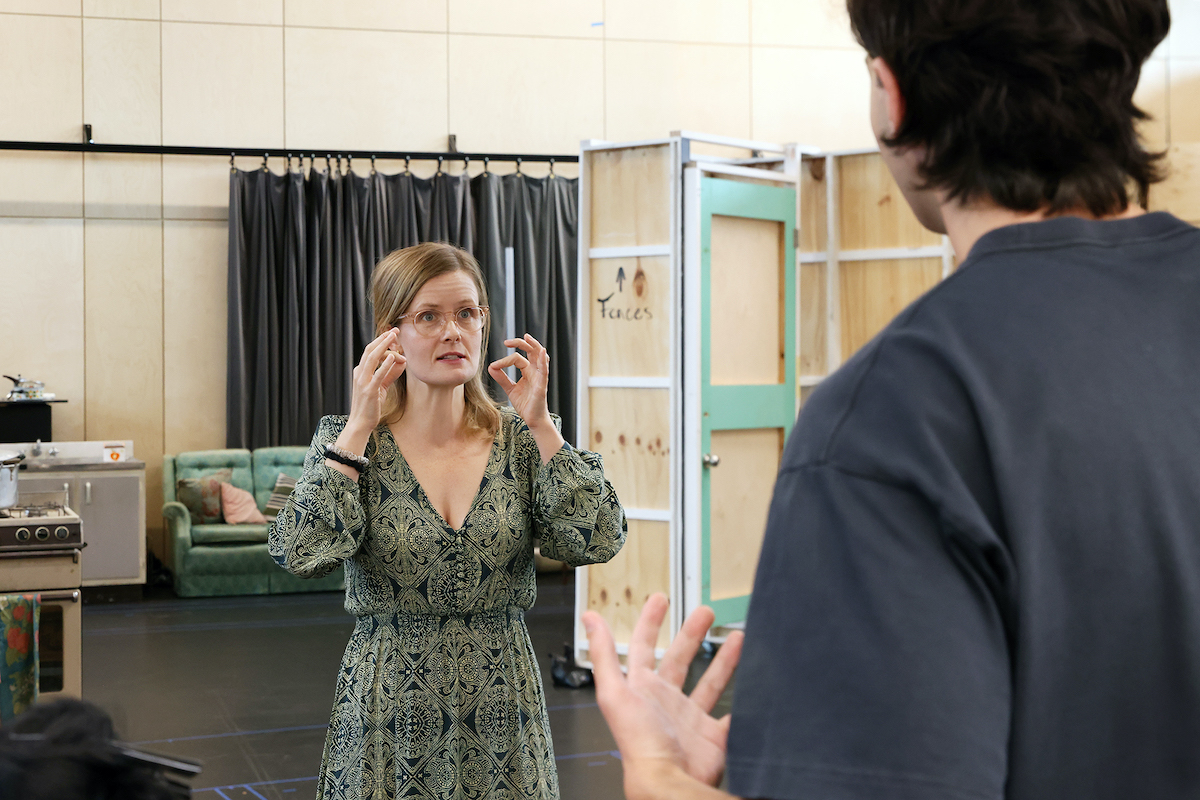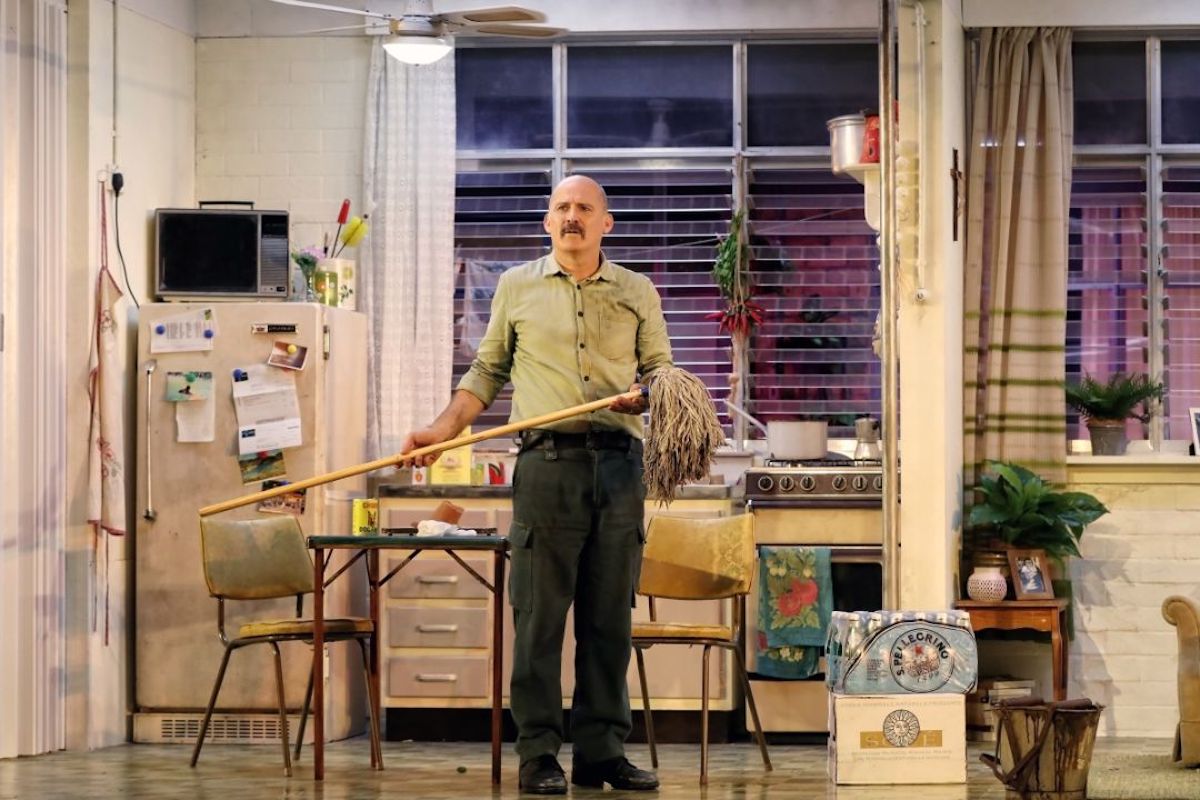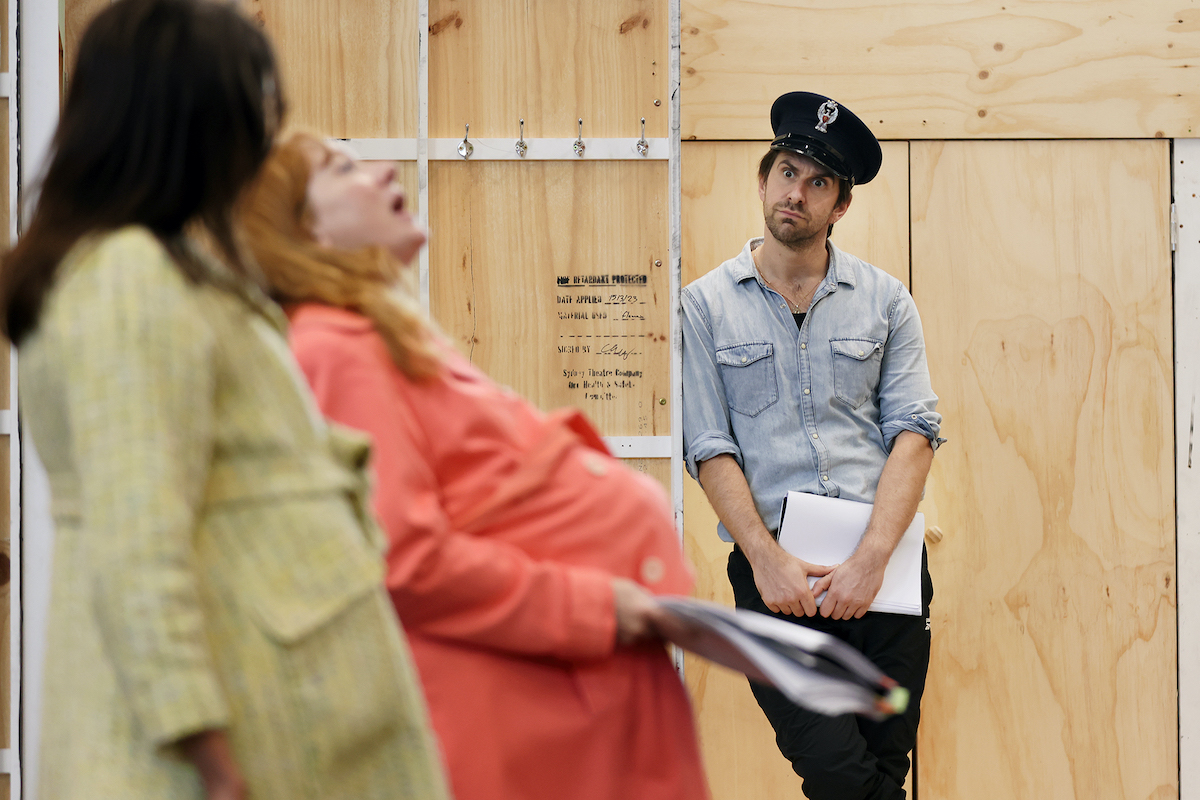Sell-out audiences. Glowing reviews. Sydney Theatre Company’s 2020 production No Pay? No Way!, an adaptation of Dario Fo and Franca Rame’s 1974 Italian farce Sotto Paga! Non Si Paga!, was having a stellar run at the Sydney Opera House, the kind directors and theatre company accountants dream about.
Then the lights went out.
Just two weeks into the season, the production (and every other performing arts event in the country) was closed in response to the emerging COVID epidemic. No Pay? No Way!, it seemed, was done.
Director Sarah Giles, now helming a revival of the show she waved goodbye to four years ago, remembers its early closure as “heartbreaking”.
“It felt like we were having this great moment in time, something we had worked towards for years,” says Giles. “And I felt that all the things I ever learned as a director had come together in that show. So, to not to have it run its course and have proper closure – even a closing night! – was really hard. I can’t begin to tell you how important a closing night is!”

Sarah Giles in rehearsal for Sydney Theatre Company’s No Pay? No Way!. Photo © Prudence Upton
For months afterwards, Giles, her partner and her two young children spent the lockdown in Melbourne. “Just us in a little house,” she says. “Which was a gift in a lot of ways because I got to spend so much time with the kids. But it was also hugely challenging, professionally. I found myself having a panic attack one night because I was just devastated. I felt that all my work had disappeared for ever.”
But over time, Giles began to change her outlook. In some ways, she says, she’s glad COVID happened when it did. “I had worked pretty consistently for a long time and what COVID did was rearrange all the priorities, the importance of family, the importance of health. This industry sort of demands we think that the most important thing in the world is the work and that if you’re not working, you’re nothing. Now I can proudly and happily say that the most important thing in the world for me is my family. Before COVID, I’m not sure I could have said that out loud.”

Glenn Hazeldine in Sydney Theatre Company’s No Pay? No Way! (2020). Photo © Prudence Upton
Sydney Theatre Company’s decision to revive the production, was “the chance to give it the full stop it never had”, Giles says. “I’m so grateful for that opportunity because it’s one so many artists and so many projects didn’t get.”
Partially recast since its truncated first run (with Mandy McElhinney, Roman Delo and Emma Harvie stepping in to play alongside original production veterans Glenn Hazeldine and Aaron Tsindos), the show is physically the same, says Giles, but may feel very different to audiences this time. In four years, the world has turned under the show. Fo’s comic attack on capitalist profiteering seems even more pointed and provoking than it was in 2020.
“When we were making it first time, everyone was still getting over the bushfires,” Giles says. “All the big conversations were about climate change and COVID. People weren’t talking about a cost of living crisis in the way they are now. In a lot of ways, 2024 is looking more and more like 1974, when the play was written.”
“a call to action”
In Fo’s play (adapted here by Marieke Hardy), inflation is climbing. Supermarket prices are rising. What you could afford yesterday, you can’t today.
Driven to extreme lengths by spiralling prices and caught up in a riot at a local supermarket that seems to be profiteering from the situation, Antonia (played by McElhinney) has “liberated” several bags of groceries and has persuaded her naïve and staunchly Catholic best friend Margherita (Harvie) to help carry them home.
Antonia is convinced that her husband Giovanni (Hazeldine) will make her return the goods, so she and Margherita hide as much as they can – which requires some wildly creative thinking.

Emma Harvie, Mandy McElhinney and Aaron Tsindos in rehearsal. Photo © Prudence Upton
“I think we’re more across that sense of anger and frustration than we were pre-COVID,” says Giles. “People have experienced inflation and are talking about negative gearing and the property market in ways that make you think something might actually be done about it.”
The biggest shift is in the attitudes of younger people, Giles says. “The older generation assumes the system works, which it largely has for them. But for younger people, the idea that if you do things by the rules, do a degree, go get a job, work hard and then you’ll be able to buy a house some day is looking more and more like a lie.”
When Fo unleashed his play on Italian audiences in 1974, some were moved to follow Antonio’s example. Supermarkets were looted. Fo’s brand of comedy – farcical, frantic – is rooted in anger. It’s a call to action, Giles says.
“In farce, you can communicate ideas not just through dialogue but through the form of the thing itself. Fo’s criticism of the system is mirrored in the structure of the play itself. Most people tend to think of farce as just funny but it can be political. Comedy is a great way to smuggle in criticism of power.”
Sydney Theatre Company’s No Pay? No Way! plays in the Drama Theatre, Sydney Opera House from 6 April to 11 May.











Comments
Log in to join the conversation.